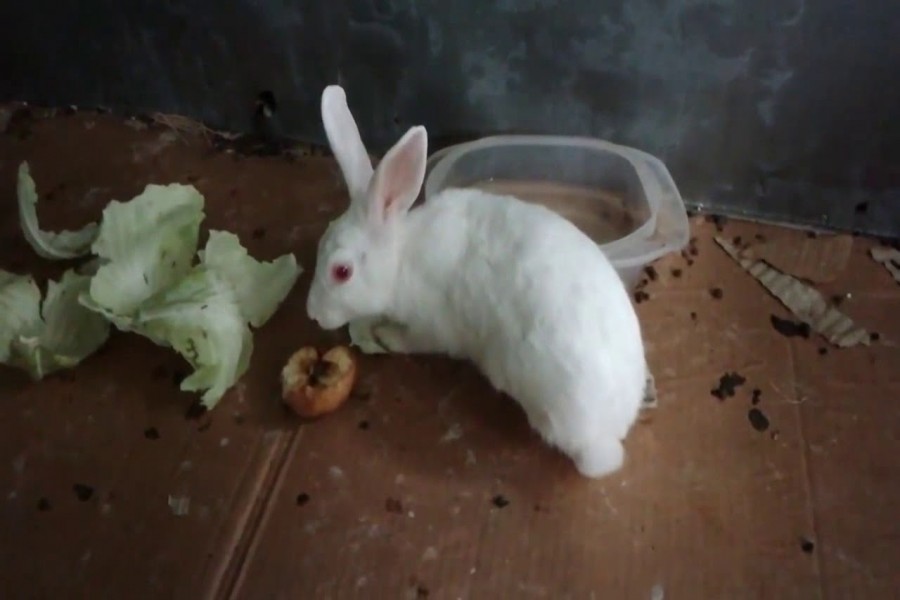
Published :
Updated :

Netrakona: A number of families at tribal-dominated Nayapara cluster village in Kullagarh union of Durgapur upazila of Netrakona district are trying to change their days by raising rabbits.
According to locals, Nihar Ranjan, a tribal youth from Susang Durgapur, had first started keeping a pair of rabbits in 2006. Afterwards many tribal people were interested in rearing rabbits to raise their income.
Later in 2006, Netrakona-based private development agency Swabalambi Unnayan Samiti undertook a pilot project called Income and Food Security for Ultra Poor-IFSAS.
Indigenous families of the cluster (Guchha) villages were brought under the project through three associations- namely Sylvia, Paharika and Nithuria.
Each family was given an interest-free loan of Tk 11,960 from the association to raise rabbits.
After getting loans, several tribal families including those of Surna Hajong, Puspabala Hajong, Geeta Hajong, Chapla Richil, Kankina Chambu Gang, Maya Rani Hajong and Rizila Hajong started rearing rabbits following two methods.
Rabbits are reared in a wooden cell four feet high and six feet wide with a net around it.
It takes six months for a rabbit to become adult from the day of birth.
After that a female rabbit gives birth to five to six babies every month. Some rabbits also give birth to a maximum of nine babies.
Geeta Hajong said she had bought two female and two male rabbits from Santosh Hajong of Manchapara village in bordering Dhobaura upazila taking a loan of Tk1,000 from the project through Nithuria Association. After six months, the rabbits started giving birth babies.
He said there is no problem of food in keeping rabbits. The main food of rabbits is green grass and young plants.
In addition, rabbits eat everything including coffee, radish, bean, turnip, bread, rice. Rabbits can be reared at home if you spend a little time along with other household chores. Rabbit meat is very nutritious and delicious. It is becoming increasingly popular with the indigenous people of the region.
"It used to be very difficult to run our family," said Konkina Chambu Gong, a member of the Sylvia Association. Prosperity has returned to their family by keeping and selling rabbits.
Hajong Nihar Ranjan, the first rabbit breeder of Susang Durgapur, said, "There is a huge potential for rabbit rearing in our area with little capital. If the government patronises this project, it will be possible to build a bright future for the tribal families."
shafikul2002@gmail.com


 For all latest news, follow The Financial Express Google News channel.
For all latest news, follow The Financial Express Google News channel.